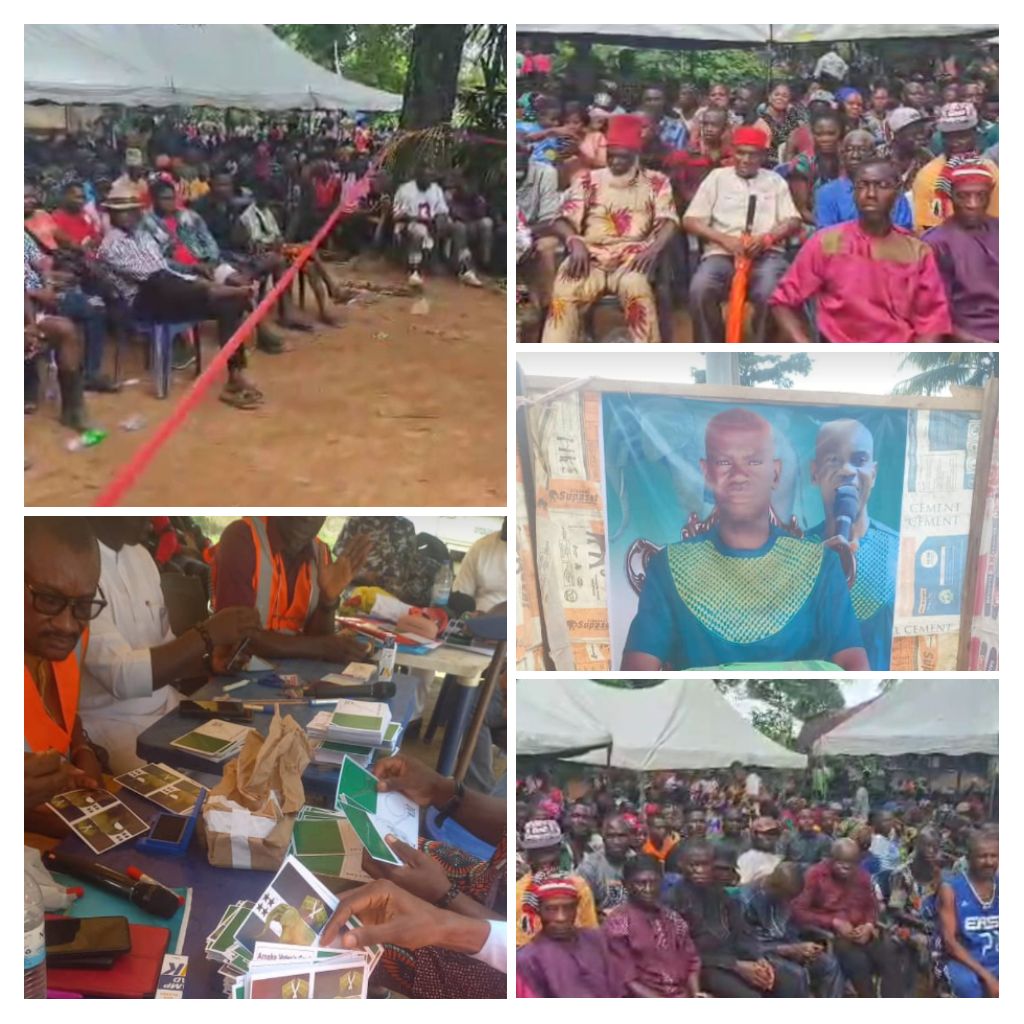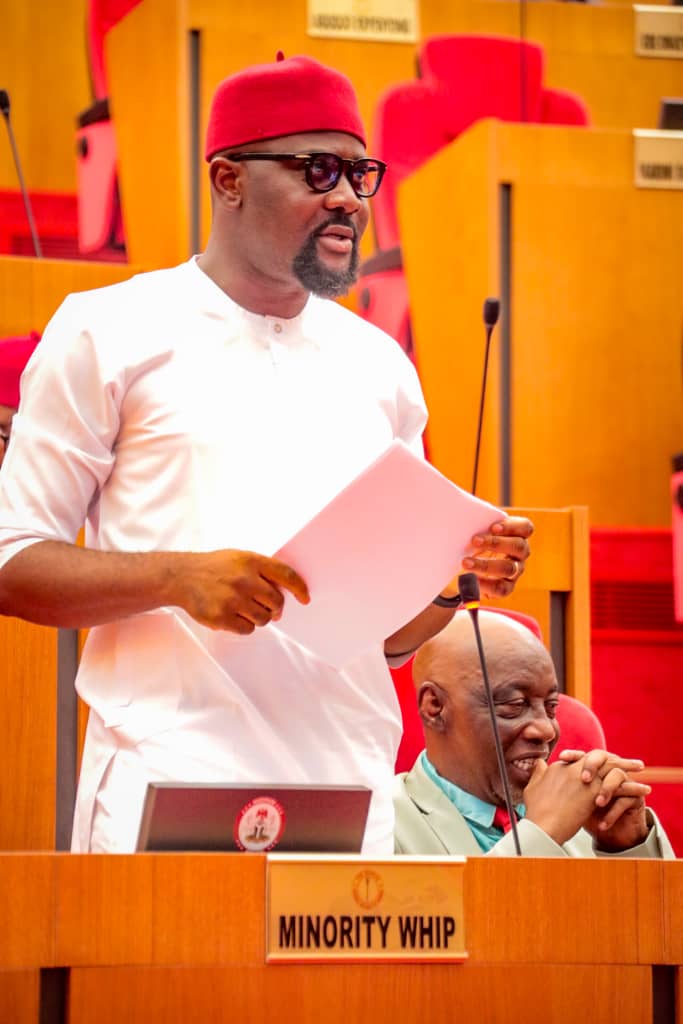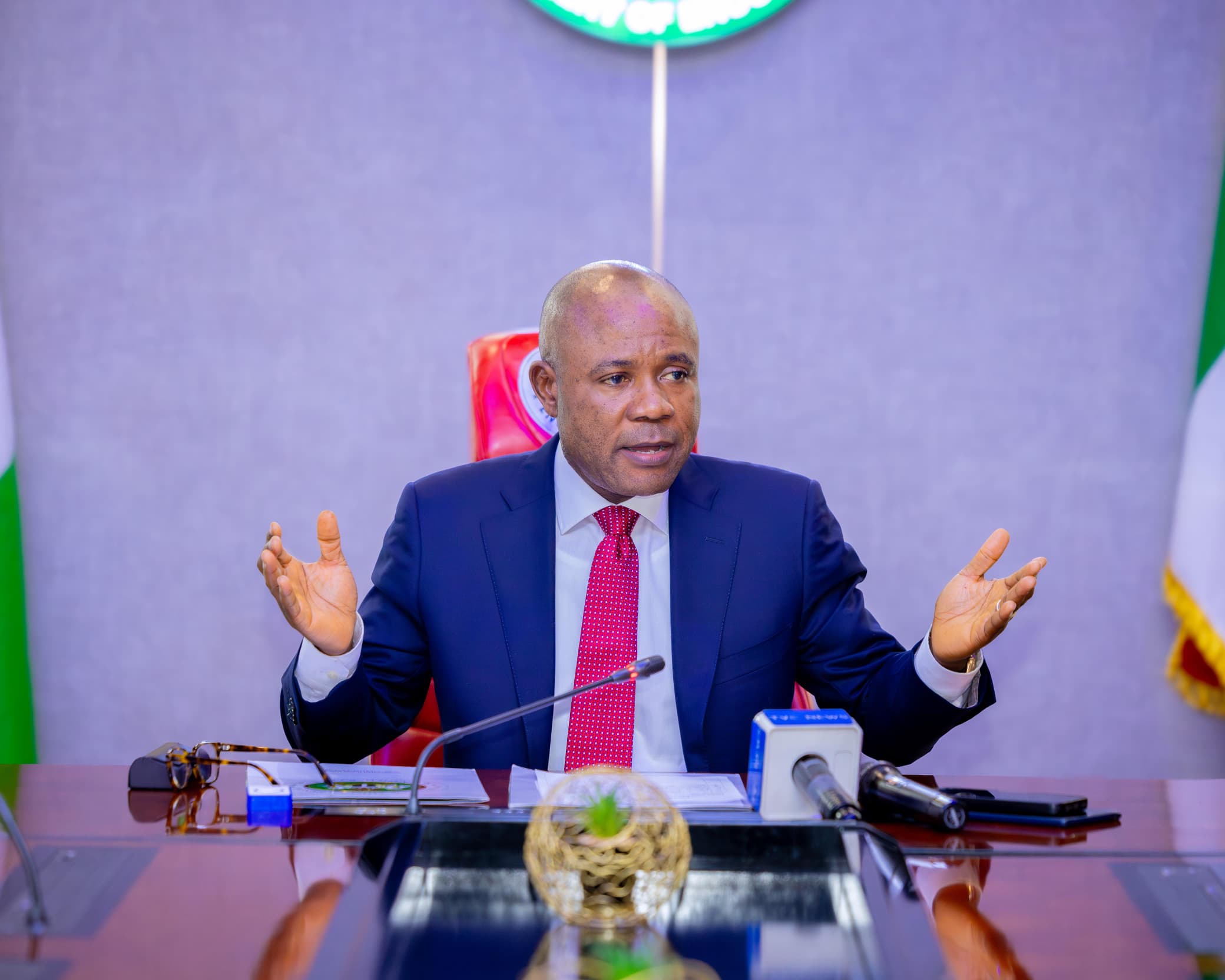Governor Mbah Has Developed Enugu State Beyond Party Lines – APC Chieftain Senator Utazi
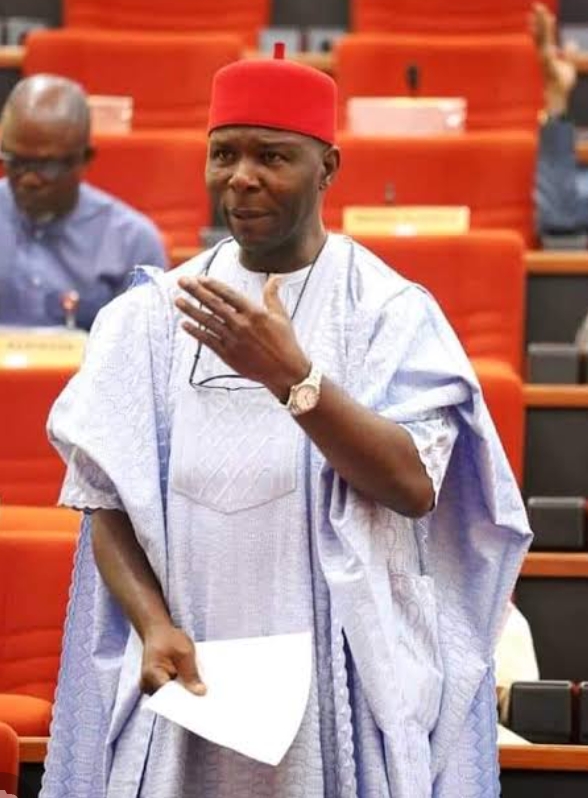
Since his inauguration in May 2023, Governor Peter Mbah of Enugu State has launched an ambitious development drive. His administration is rewriting Enugu’s story with dozens of new roads, smart classrooms, and big investments across agriculture and industry. Infrastructure, education and the economy have all seen a surge of projects and funding, yielding measurable results that have even impressed rival politicians and international partners. Below we detail the major initiatives in each sector, with figures and firsthand reactions to show how Enugu is changing.
Infrastructure: Roads, Water and Connectivity
Mbah has made infrastructure a centerpiece of his agenda. In May 2024 – on his one-year anniversary – he commissioned 71 urban roads (completed as the first phase of a broad plan) and simultaneously launched an 80-road second phase. Beyond the city, his government pledged at least 10km of new road in each electoral ward, ensuring rural areas aren’t left behind. Mbah vowed to pave all major “Trunk A” and “Trunk B” routes in both urban and rural areas. This work includes key highway upgrades – for example, the Enugu–Ugwogo Nike–Opi–Nsukka dual carriageway is being built at a record 43.7 km length – and dozens of local streets in communities that hadn’t seen new pavement for decades. One local resident noted that whole areas of Enugu (like Idaw River) are seeing their first new roads in 50 years.
The results are visible: even opposition figures have noticed. At a coalition meeting in April 2025, former APC senator Chuka Utazi praised the governor’s work: “From the airport to Nsukka, we now see ‘nylon roads’ – a level of infrastructure previously only seen in Abuja,” he said. A local APC board member echoed the sentiment, noting that Enugu’s North zone has been “the greatest beneficiary” of these projects, especially the new Smart Schools and upgraded clinics lining the new roads. (We’ll discuss those schools shortly.) In other words, Mbah’s road-building blitz has won bipartisan acclaim as it physically links more communities into Enugu’s economy.
Enugu is also investing in water and power. In late 2024 the state formalized a $100 million foreign investment to modernize its water network. This WANDE Nexus deal covers last-mile pipe connections and smart metering, aiming to boost treated water supply from a sporadic 2 million liters to over 120 million liters. “This huge sum shows that … we are yielding results,” Governor Mbah said, noting that this kind of federal/private partnership was once unheard-of. (Even if fully delivered, local news reports later questioned execution, the announced investment itself marks a step toward fixing Enugu’s chronic water woes.) And on power and digital infrastructure, Enugu removed fees for laying fiber optics, allowing telecom companies to expand high-speed internet statewide. Under the national Project 774, all 17 local government headquarters will now get dedicated broadband links through Enugu’s collaboration. Federal ministers have even hailed Enugu as a model of digital readiness, praising Mbah’s push to connect schools, clinics and towns with fast internet.
Beyond roads and utilities, security infrastructure has been beefed up too. A state-of-the-art Command and Control Center – essentially an advanced CCTV monitoring hub – was opened in Enugu, which local leaders declared *“a national model for tracking criminal activities”*. And public transit is expanding: the Nsukka area now boasts a modern Central Transport Terminal and a fleet of clean-energy (CNG-powered) buses, making travel safer and cutting pollution.
In short, Enugu’s streets and services are rapidly improving. A former deputy governor in Nsukka made this observation in April 2025: “His projects are opening up the zone for development,” and he officially endorsed Mbah for a second term on that basis. Infrastructure is turning into a concrete success that even political rivals cannot ignore.
Education and Human Development
Education has been another flagship of the Mbah administration. The centerpiece is the “Smart Green School” initiative – a plan to build one modern primary school in each of Enugu’s 260 wards. These Smart Schools combine new classrooms, digital technology, environmental design, and trained teachers to provide a 21st-century learning environment. By early 2025, over 260 new Smart Green Schools had been commissioned or launched, with a projected 7,000 total classrooms coming online. In a nationwide review, the Universal Basic Education Commission (UBEC) lauded Enugu’s effort as *“brave and strategic”*, noting that few governors invest so heavily in basic education despite the long-term payoffs. And UNICEF’s state representative explicitly praised Mbah as “the pioneer of Smart Schools” in the South-east, saying these investments in classrooms and WASH (Water-Sanitation-Hygiene) facilities were a “turning point” for the state.
A key innovation is that these schools will be holistic campuses. In March 2025 Mbah signed a multi-year cooperation plan with UNICEF to tie education and health together
. Under the program, by September 2025 the smart schools will not only open with modern labs and internet, but will also provide daily nutritious meals and basic healthcare to students. “Our Smart Schools will come into operation… providing not just quality education but also daily balanced meals and healthcare within each school,” Mbah told reporters. This school feeding program – aimed at 300,000 children a day – is unprecedented in Enugu, and is part of a broader pledge: Enugu now allocates about 33% of its annual budget to education, reflecting a top priority on human capital. (By comparison, many Nigerian states spend under 20% on education.)
The results are already influencing opinion. Local lawmakers from the former Labour Party, after visiting some smart schools, publicly defected to Mbah’s PDP and cited “visible impacts in…education — with over 7,000 classrooms in the Smart Schools project” as their reason. In their words, *“the governor is making visible impacts in transportation, education… and more.”*. Similarly, State Education Commissioner reports indicate rising enrollment and exam pass rates as more communities get schools and trained teachers. UBEC’s Executive Secretary Dr. Hamid Bobboyi emphasized that Enugu’s approach – building infrastructure first and then training teachers – is exactly the kind of systemic reform Nigeria needs.
Higher education and skills training also feature in the strategy. The state is partnering with Nigeria’s ICT ministry to train workers and students in digital skills. Over 14,000 Enugu residents applied to the national digital-skills program (with the goal of certifying 150,000 people statewide). Enugu will host a South-East Artificial Intelligence center and a federal IT agency branch, creating tech jobs on campus. Mbah has framed all these as investment in people: “Education, health and welfare of children… drives genuine economic growth,” he stated recently, echoing Zik’s famous maxim. In short, Enugu’s classrooms are getting smarter and healthier, setting a foundation for future growth.
Economic Growth and Investment
Governor Mbah’s reforms also aim squarely at boosting the economy. One pillar has been agricultural revitalization. Enugu United Palm Products Ltd (EUPPL) – a state-owned palm plantation covering 6,700 hectares – had lain moribund for decades. Mbah’s team secured a ₦100 billion (about $130m) investment to modernize EUPPL, install new machinery and expand its operations. This move is expected to triple output and create thousands of farm jobs once in full swing. Meanwhile, mechanized farming is being scaled up: the government partnered with Denmark’s ODK Group on a tractor assembly plant. A $6 million facility opened in late 2024, and Enugu has already ordered 1,000 tractors to local farmers. In the first batch, 102 tractors were delivered and 898 more are being assembled in Enugu, ensuring that smallholders can rent or buy modern equipment. As an analyst noted, these moves “equip farmers with tools to maximise productivity” and build a local agro-industrial ecosystem.
Manufacturing and industry are getting a boost too. In October 2024, Mbah flagged off a Doors manufacturing plant by New-Watson Group in Enugu. This factory will make quality doors and windows locally, cutting import costs and creating skilled factory jobs. In the tech sector, Chinese home-electronics giant Haier committed a $20 million foreign direct investment to build an ICT assembly plant in Enugu. When operational, it will produce laptops, phones and other devices in-state – a boon to the growing digital economy and a way to narrow the gadget shortage. Haier’s deal is especially timely given the digital initiatives; more locally made computers mean more schools and homes can get connected.
In parallel, the government has been mobilizing finance. In August 2023 Mbah unveiled a ₦1.6 trillion ($2.1 billion) pipeline of 30 major projects, ranging across transport, health, power and agro-industry. This transparency attracted attention from the World Bank, AfDB and major banks, who were invited to the Enugu Investment Roundtable to chart funding strategies. (The state’s goal: grow Enugu’s economy from roughly $4.4 billion in 2022 to $30 billion in eight years.) At federal levels, Enugu has earned praise for these pro-business moves. In March 2025, Nigeria’s Communications Minister commended Enugu as a “model” for digital and economic reform. The minister noted that Mbah is aligning state policy with national initiatives, all feeding into that $30-billion goal.
Other public-private ventures include a $100m credit facility launched by the state to fund small businesses and agri-startups. At least one N100-billion soybean processing plant and several chicken farms have started up with Enugu state backing. Even tourism and services are on the table: the governor mentioned plans for an international conference center, a 5-star hotel, and a new 300-bed hospital in Enugu, which he said would turn the state into a “hub for medical tourism and job creation”.
The upshot: Enugu is no longer passively begging for investors – it’s aggressively courting them with projects. Analysts credit this “bold leadership” with making Enugu an attractive investment destination. Unemployment is slowly easing as factories, farms, and tech hubs hire locals. And this dynamism has cross-party backing: for example, in a recent Enugu North stakeholders meeting, even long-time APC figures acknowledged that Mbah’s tenure has “done well” and graced the region with amenities like Smart Schools and clinics.
Broad Support and Recognition
These development strides have drawn praise from many sides. International bodies like UNICEF and UBEC have publicly applauded Enugu’s new priorities. UNICEF’s field chief highlighted Mbah’s “sterling leadership” and vowed continued partnership in health and education programs. Back home, politicians across party lines have switched allegiances or voiced support. In May 2025 two federal and one state lawmaker from the former Labour Party cited “Mbah’s development strides” – especially in roads, schools and security – as their reason for jumping to the PDP. They even said he had made “opposition nearly impossible with his transformational leadership”.
Similarly, an April 2025 coalition of Nsukka leaders (from all six LGAs and various parties) formally endorsed Mbah for a second term. Their communique praised projects “opening up the zone” and noted that the region will be the biggest beneficiary of his ongoing works. Even prominent APC figures like Senator Utazi declared “this is not about party, it’s about leadership” when referring to Mbah’s accomplishments. A local PDP chairman lamented that defections back to his party (to support Mbah) would “ensure a seamless and peaceful victory” in 2027, highlighting how politics has given way to the pursuit of progress.
In essence, Governor Mbah’s first two years have been marked by visible construction and reforms, backed up by numbers and outside validation. From newly paved highways to tech-enabled schools feeding hundreds of thousands of children, the initiatives are concrete. And they haven’t gone unnoticed: as one activist put it, “Governor Mbah deserves our collective support… His projects are opening up [Enugu] for development”. For ordinary residents, the change is tangible. Business owners report increased sales thanks to better roads and power, teachers welcome modern facilities, and farmers now plan to expand their harvests.
As Enugu continues on this path, the state is actively showing how governance can drive growth. Whether measured in Naira, exam results or smiles on commuters’ faces, the impacts are there – and even critics find themselves cheering on the progress.
Leave a Reply
Your email address will not be published. Required fields are marked *






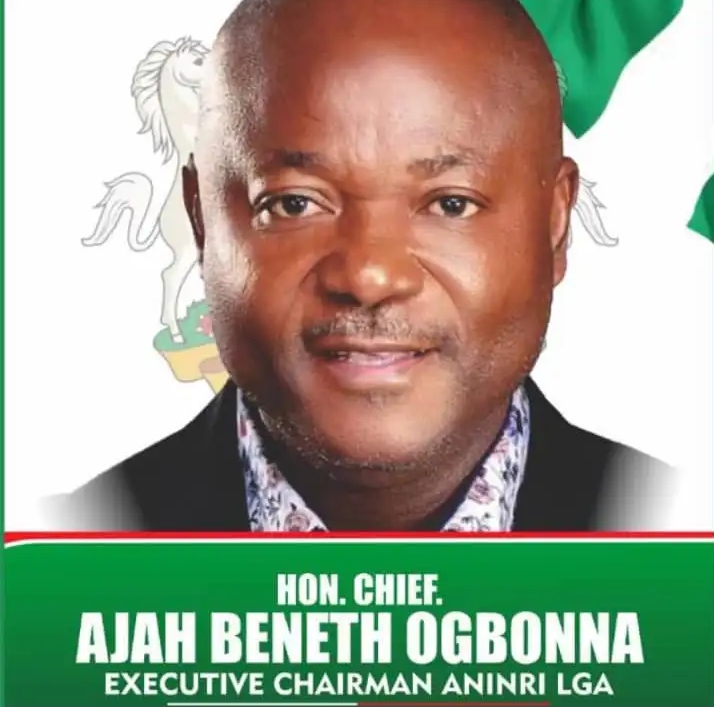
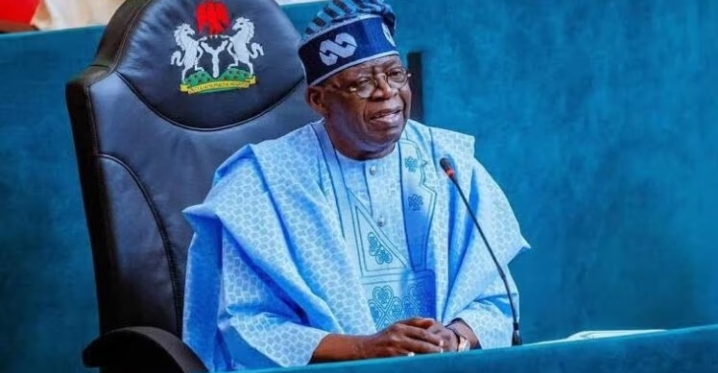
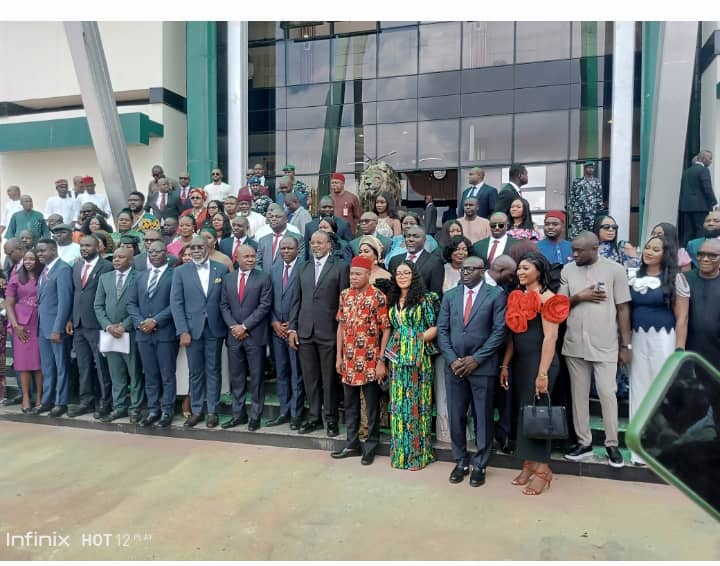
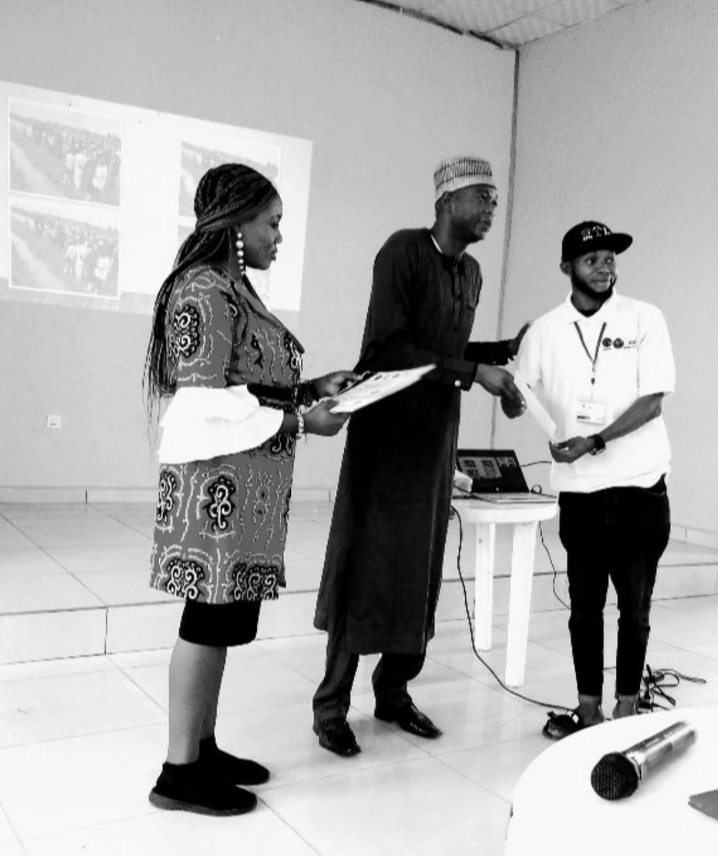
.jpg)
